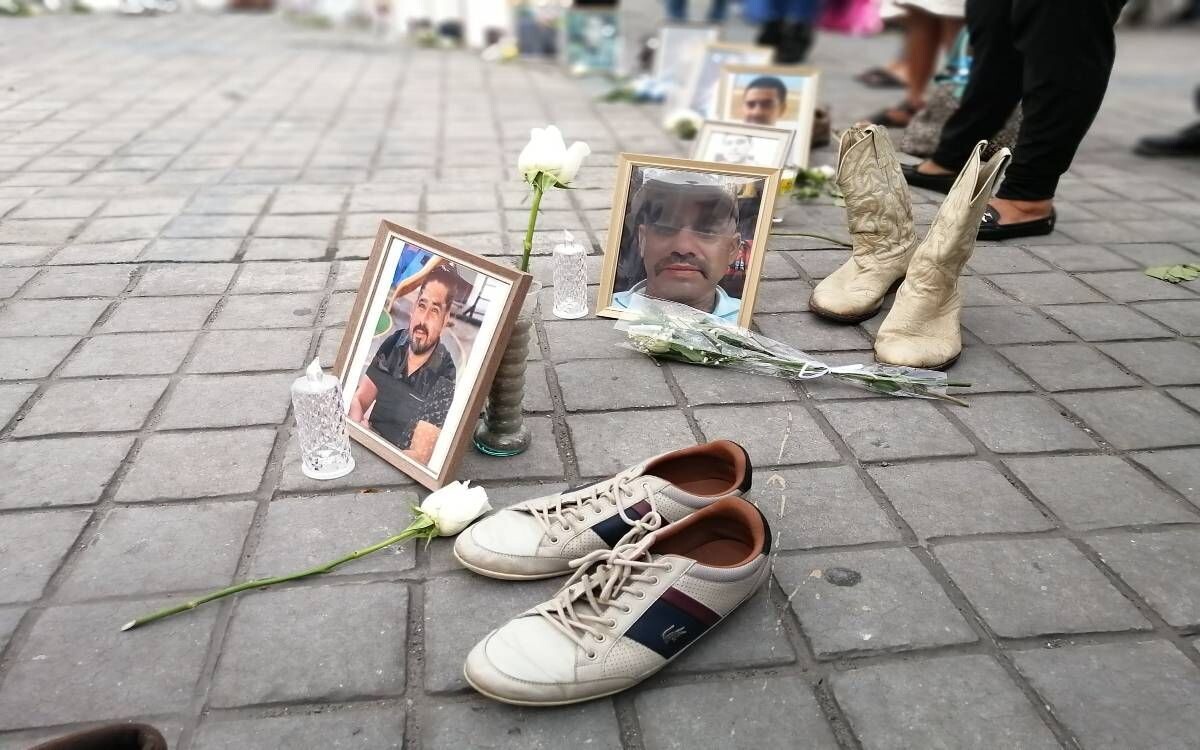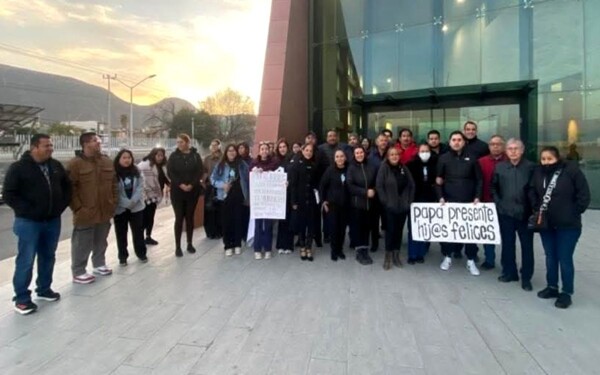
In Mexico, the disappearance of persons has increased along with clandestine graves and unidentified bodies, due to the institutional abandonment of the National Search System, noted the civil association Causa en Común. In its report “Names without bodies and bodies without names: notes on the omission of the Mexican state in the tragedy of the disappeared,” the organization stated that, six years after the enactment of the General Law on Disappearance, the search and identification project has been “a failure.”
According to their data, during the six-year term of Andrés Manuel López Obrador, 53,261 disappearances were registered, totaling 120,628 cases. Additionally, of the 5,698 clandestine graves documented by the National Search Commission between 2006 and 2023, half were found during this government. 99% of the disappearances remain unpunished.
Causa en Común also accused the federal government of “manipulating records and minimizing the tragedy,” while groups of searching mothers face risks in their work “under the pressure of organized crime and the indifference of incompetent institutions.” In light of this situation, the association proposed to reactivate the National Search System (SNB), rescue the independence of the National Search Commission. Furthermore, strengthen state commissions, police, and prosecutors with greater resources and technical capabilities to address the crisis.
According to the National Registry of Disappeared and Unlocated Persons (RNPDNO), as of December 31, 2024, Mexico had a total of 344,592 records of disappearances, of which 65% correspond to located persons and 35% to persons who remain missing. This represents a total of 120,628 missing persons in the country, indicated Causa en Común.
According to the RNPDNO, 89% of the registered disappearances correspond to the last 18 years, a period marked by the rise of violence linked to organized crime. Between 2006 and 2024, 107,024 disappearances were recorded, with three main periods reflecting the behavior of the figures.
The first period (2006-2011) was characterized by a sustained increase in the number of disappearances, reaching a peak of 5,145 cases in 2011. In the second period (2012-2015), a relative stability was observed, with an average of 4,364 annual cases. However, since 2016, a third period began with high annual increases, reaching record figures. In 2024, the highest number of disappearances in the recent history of the country was recorded, with a total of 13,449 cases. Compared to 2023, disappearances increased by 30% at the national level.
The entities with the largest increases in disappearances during this period were Sonora, 200%; Aguascalientes, 198%; and Sinaloa, 129%. Between 2006 and 2024, the RNPDNO documented the disappearance of 23,626 women and 14,316 minors. In 2024, disappearances of women and minors reached historical figures, compared to 2023, disappearances of women increased by 54%, while those of minors rose by 76%.
During López Obrador's government, 49% of disappearances occurred in six entities, Jalisco with 6,724, State of Mexico with 5,425; Michoacán with 3,758, Mexico City with 3,655; Tamaulipas with 3,351 and Nuevo León with 3,256 missing persons.
The association reiterated that the state Search Commissions and the National Search Commission (CNB) are responsible for coordinating search actions for missing persons in Mexico; however, their functioning has been affected by delays and lack of resources. The General Law established that the commissions should have been formed in 2018, but the creation only finalized in 2021. Funding is also an issue; according to research by Elementa and Política Colectiva, only 0.02% of the state budget was allocated to the Search Commissions, equivalent to 612 million pesos.
Moreover, the commissions primarily rely on federal subsidies, which limits the development of the CNB; in 2024, 58% of the CNB budget was allocated to the state commissions. Causa en Común indicated that despite efforts, detailed information on the use of these resources is not available, making it difficult to evaluate search actions and strengthen specialized personnel. Consequently, it concluded that the lack of funding and transparency continues to hinder search and justice efforts regarding disappearances in the country.














